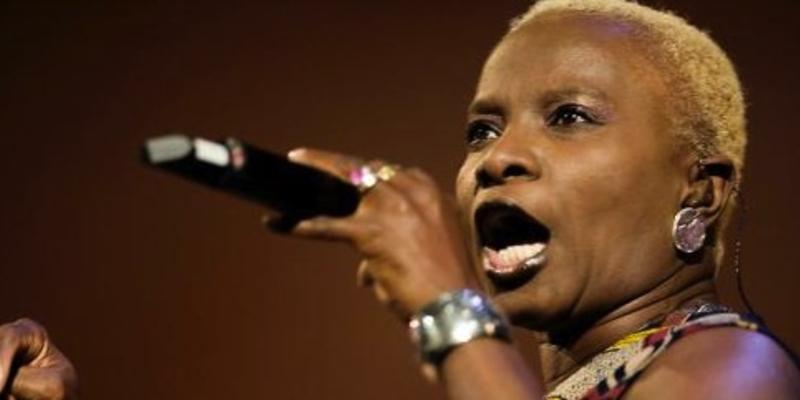Notwithstanding the fact that I was one of roughly 20 or so black people (out of roughly 175 total) in attendance for this concert of African music, I was unbelievably excited. Not because I had the chance to see a Grammy Award-winning artist perform one of the most awe-inspiring and entertaining sets that I've experienced in recent history. Quite the contrary, I was excited, no—elated—at the idea that I was going to bear witness to virtually an entire room of white people dancing and singing traditional African chants with reckless abandon!
The night started with something of a disclaimer from Kidjo: "You will be dancing and singing by the end of this show." Convinced my Southern indignation would never allow such a thing in a public, alcohol-free setting, Kidjo's warning went largely unheeded. The same could not be said for many of the people seated around me, though.
Kidjo kicked things off with a Beninese song that highlighted the importance of education at a young age and the paralyzing poverty that Benin faced, and still faces. Albeit a more somber portion of the performance, this did not deter a 20-something, fair-skinned lady near the front row to become overwhelmed with emotion, jump up, and start dancing to Kidjo's words.
Now, I use the term "dancing" loosely, because while this young lady was surely convinced she was the prima ballerina of the Bolshoi Ballet, her movements seemed to channel the drum-circle swaying that is usually reserved for Burning Man or Bonnaroo.
Things just got weirder as the set went on.
Kidjo sang a song about the dangers of female genital mutilation and white people danced to it...
She also sang a particularly sad song about domestic violence against women. Oh, people danced and sang to that one as well. It got to a point where Kidjo could have sang about the Second Coming and Armageddon and this crowd would have still clapped its hands and stomped its feet.
But something odd happened about three-quarters of the way through the concert. There was a point where everybody was on their feet, swaying, jumping, shouting all the buzz words they could remember from that one Gullah History tour—because, you know, that's basically African. And I, too, found the rhythm and proceeded to butt bump with the older-but-rambunctious couple seated next to me. Much too prideful to admit it then, I was having a good time.
Granted, knowledge of my African roots is limited and the only real experience I've had with African music was the opening credits to "The Lion King," but there was something to be said about the outpouring of unity and good-natured fun I witnessed on that stage in the TD Arena.
Ultimately, it was a weird, entertaining, uncomfortable, enlightening, uncoordinated, confusing, interesting, and unabashedly candid performance that used deeply traditional, African music, dances and colors to tell a truly fantastic story.

